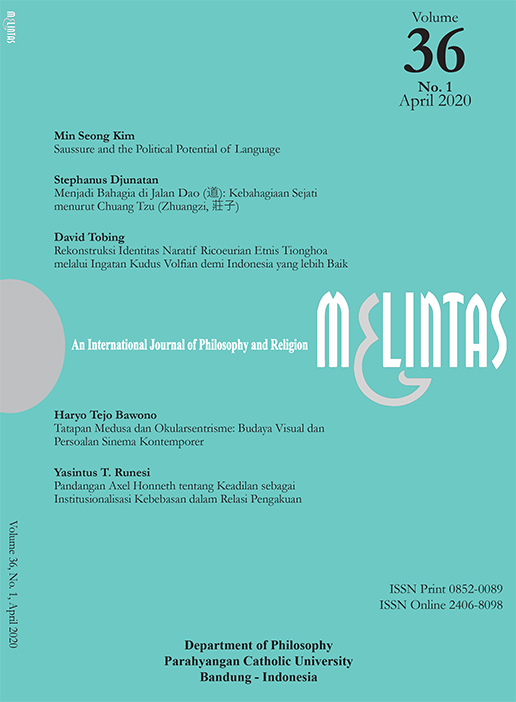Menjadi Bahagia di Jalan Dao (道): Kebahagiaan Sejati menurut Chuang Tzu (Zhuangzi, 莊子)
Main Article Content
Abstract
In the last decade, scientists in almost all disciplines often elaborate happiness using interdisciplinary approaches, metodologies, and measurements, both quantitative and qualitative. Beside scientific approaches, one can also explore this topic from the viewpoint of speculative and phenomenological thinking. This viewpoint describes the experiences of happiness by realising empirical and rational knowledge as well as esoteric consciousness of reality as such. It is Chuang Tzu (Zhuangzi), whose thoughts elaborate cognitive and intuitive sides of human mind, who offers a philosophy in order to bring forward an awareness of reality as itself. Chuang Tzu argues for a realisation of conjunction of both cognitive and intuitive capabilities of human mind, as well as its rational and mystical sides. The realisation of both natural capabilities brings about conditions for modern people’s experience of happiness.
Article Details
Issue
Section
Articles
MELINTAS applies the Creative Commons Attribution (CC BY NC) license to articles and other works we publish. If you submit your paper for publication by MELINTAS, you agree to have the CC BY NC license applied to your work.
